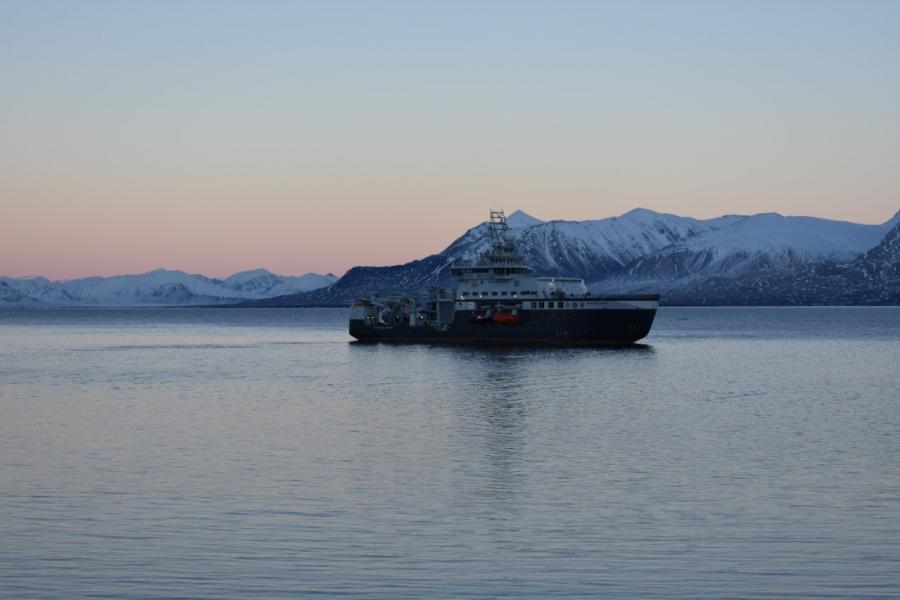The Environmental Science and Design Research Institute fosters innovative, interdisciplinary research at the intersection of natural, human and built systems. Our mission is to generate new knowledge, develop practical solutions and create transformative designs that address pressing environmental challenges—locally, regionally and globally.
We champion research and creative activities grounded in scientific methods and design thinking. ESDRI brings together students, faculty and community partners to explore the complex relationships among biological, social, cultural and economic systems. These dynamics shape the availability of essential resources, support biodiversity and influence human health and well-being.
Students: The institute aims to build research skills in students, in order to cultivate well-rounded, critical thinking professionals. ESDRI recognizes the professional and personal importance of students having foundational research or creative experiences, professional skills, and environmental knowledge, which is facilitated through a variety of workshops, speakers, forums, special events, socials, one-on-one guidance, and more. The institute supports undergraduates through its Fellowship Program, in hopes of mentoring a new generation of scholars. ESDRI supports graduate students through its Graduate Student Research Awards. All students are encouraged to share their work at the ESDRI Research Showcase each Spring.
View Current ESDRI Fellows
Faculty: ESDRI provides many opportunities for faculty to advance their research and facilitates multidisciplinary collaborations, procuring intramural and extramural funding, and working with qualified student researchers. The institute engages a broad range of talented scientists, designers, and practitioners, spanning many academic disciplines, fields, and programs. The institute proudly hosts an annual Sustainability Forum, with an ever-evolving theme, which draws from KSU faculty, students, and many of our community partners.
Academic units represented within ESDRI include:
- Aeronautics and Engineering
- Architecture and Environmental Design
- Art
- Biological Sciences
- Chemistry and Biochemistry
- Communication and Information
- Earth Sciences
- English
- Fashion
- Geography
- Peace and Conflict Studies
- Political Science
- Public Health
- Recreation, Park and Tourism Management
- Teaching, Learning and Curriculum Studies
View ESDRI-affiliated Faculty Members
By empowering environmental research, the institute aims to foster change by drawing from robust, well-informed science and design or extrapolating on the research ourselves. ESDRI encourages students, faculty, and the greater community to understand and leverage the interacting geological, biological, human, economical, cultural, and social systems around us. These overlapping systems impact and regulate the availability of resources (e.g. pure water, clean air, and food), sustain diversity of life on Earth, promote well-being, and affect all of us in our daily life.

Kent State's Jonathan Maletic, Ph.D., in the Department of Computer Science and Tara Smith, Ph.D., in the College of Public Health are the winners of the 2021 Faculty Outstanding Research and Scholarship Awards (ORSAs). The ORSAs recognize the hard work and dedication of faculty members who have been with Kent State for more than 10 years. Read more about the winners and how they display the highest levels of scholarship.

Researchers from Kent State University and the University of New Mexico determined how nitrogen-fixing plants and soil microbes contribute to the overall nitrogen availability in the Chihuahuan desert in New Mexico.

He Yin, Ph.D., assistant professor in Kent State University’s Department of Geography, recently received NASA’s New (Early Career) Investigator Award in Earth Science. Yin will lead evaluation and research of the devastating effects that the Syrian civil war has had on croplands throughout the eastern Mediterranean region.
Cities are starting to come to life, literally, thanks to the implementation of vegetation through living architecture.

Recent funding from the National Science Foundation (NSF) has given interdisciplinary researchers the opportunity to help drive our understanding of patterns in nature when bringing together big data sources collected in different ways.

Kent State University has recently received a flurry of grants totaling more than $3 million in funding from the National Science Foundation (NSF), which will support research and innovation in a wide range of fields within the College of Arts and Sciences.

From the iconic outfits made famous by Michael Jackson to the hit television show “What Not to Wear,” the fashion industry continues to emerge as an impactful influencer in many areas of societal behavior.

One of Kent State University’s newest faculty members in the Department of Geology has already made her mark with the recent publication of her and her colleagues’ work to better understand the effects of global warming as it relates to the arctic ocean. Allyson Tessin, assistant professor, specializes in biochemistry, oceanography and sedimentary geology. She is currently studying the relationship between the chemistry of the ocean and climate change.

Three faculty members in Kent State University's Department of Biological Sciences recently co-authored a 384-page hardcover book, “Problem Plants of Ohio,” published by the Kent State University Press.






